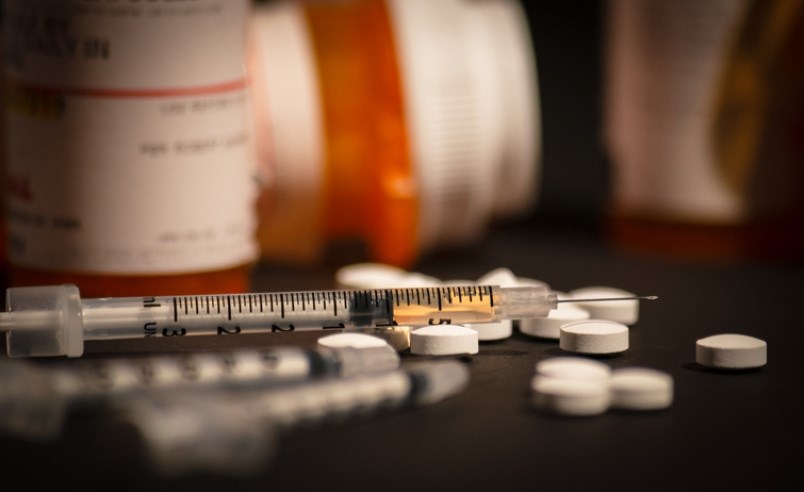Less than four months after B.C. was given the ability to decriminalize the possession of small amounts of illegal drugs, there are signs that changes are coming to the policy.
After weeks of being slammed by the Opposition during daily question period over the lack of so-called “guardrails” to go with decriminalization, the BC NDP government appeared to have wilted somewhat by the end of the legislative session.
While still defending the move to decriminalization as a worthy endeavour, Premier David Eby himself offered a reminder that decriminalization is a pilot project and opened the door for revisiting the entire issue if things don’t work out as planned.
More specifically, he agreed that municipalities that are concerned that decriminalization has led to a spike in the use of illegal drugs in public parks and schoolyards need to have those concerns listened to.
“Nobody wants this activity affecting our kids, and we will do something,” he told the legislature on the last day of the session.
What, exactly, or even “when” that “something” will happen is not entirely clear. If legislation is needed to address the problem of illegal drugs (and I am not sure it is, or whether a cabinet order could suffice), then it will take a while, since the house doesn’t sit again until the fall.
People using illegal drugs in parks and playgrounds (in some cases leaving behind their drug paraphernalia) is one of those “unintended consequences” that those so-called “guardrails” were supposed to keep at bay, presumably.
As the Opposition BC United party (formerly known as the BC Liberal Party) pushes away from supporting decriminalization (as it currently stands) and the NDP acknowledges some changes may be required, it is worth noting the latest update of the worst statistic associated with the opioid crisis: deaths.
The data from the coroner’s service was another bleak and grim reminder that solving the crisis ― if it indeed can be “solved” ― will likely not result from a single change in policy.
During the month of April, 206 British Columbians died from an overdose of illicit drugs (up 17 per cent from the previous April and up four per cent from March).
More than three-quarters of the deaths are men, and illicit fentanyl was present in eight out of 10 deaths ―so the other pillar of drug policy, the availability of a safe supply of opioids and stimulants for drug users, is not a factor in the deaths, according to Chief Coroner Lisa Lapointe.
To B.C.’s south, the decriminalization of illegal drugs is shaping up to be a key election issue in the one state that has adopted it as a policy – Oregon. It is also becoming a political football in Washington state, where decriminalization may soon be the new policy.
B.C.’s decriminalization “pilot” is set to last three years to allow enough time to gather evidence and data to see what’s working and what’s not. That means, barring any change to that timeline, it will still be in place when the next provincial election is held in 2024.
Based on what we saw and heard in the just-concluded legislative session, there is a good chance that drug decriminalization could be a key separation point between the BC NDP and BC United election platforms.
Both parties have been advocating for tougher positions when it comes to law and order and public safety issues. We shall see whether the decriminalization pilot project can navigate its way through these increasingly storm-tossed political seas.
Keith Baldrey is chief political reporter for Global BC.





